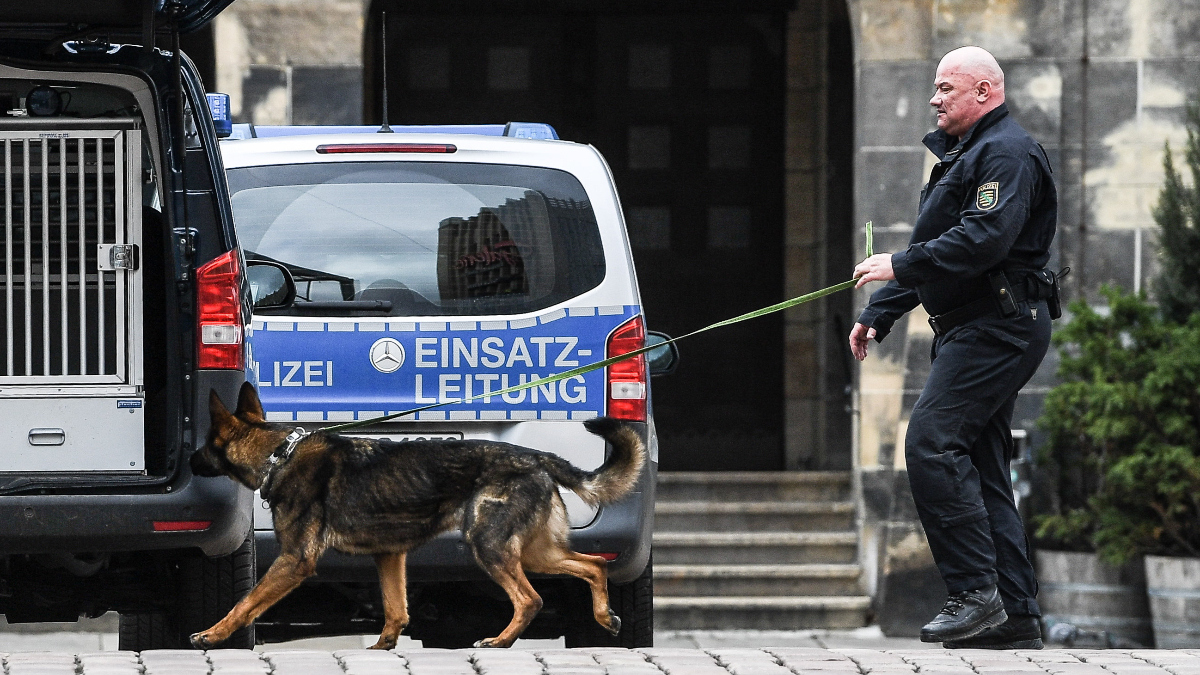Berlin police dogs trained to attack perpetrators using the controversial ‘leash and collar’ method have been placed on involuntary rest after the method of training was deemed to contravene a new animal rights law brought into force at the beginning of the year.
49 of the 130 canine units in the region along with their handlers have been suspended from duty whilst the service assesses how to move forward, according to Hungarian news portal Index.
During deployments, police dog handlers will often control the animals by either pulling the leash and or tightening the collar, which effectively restricts the dog’s airways briefly and is a signal understood by them to stop an attack. However following the introduction of the new Animal Welfare Act on Jan. 1, pushed through by former Chancellor Angela Merkel’s agriculture minister, this type of training method is now unlawful.
The law affects not only guard dogs but also dogs involved with special forces such as narcotics and national security, and those of the Spezialeizatzkommando (SEK), the tactical units of the police in all 16 German states.
“Due to changes in the Animal Welfare Act, we are currently unable to use some of our service dogs on deployments,” police spokesman Thilo Cablitz said, adding that police are still looking for a way to re-employ dogs removed from service without breaking the law.
Dog handlers are no longer allowed to restrict the collar when training canines, however police chiefs are concerned that without a viable alternative, which they are open to, the law change could have an adverse effect on the force’s ability to keep people safe.
Stephan Kelm, the vice-chair of the Berlin branch of the police union GdP warned that the depletion of the force’s canine units could have “severe consequences for domestic security,” adding: “We are completely open to innovative training methods, in which it is not necessary to inflict pain. But right now we don’t know of any.”
The provision was introduced primarily to improve animal husbandry standards, but also applies to all dogs, including guardians. The law regulates breeding practices, from the size of the kennels to their ventilation, and also requires farmers to walk their pets regularly and to ensure they frequently socialize with other dogs also.
Under the new legislation, only under strict conditions is it now acceptable to chain dogs or to use any equipment that inflicts pain.





